Nowadays, the model of community cultural houses has become a popular construction in the lives of residents in most localities. From remote mountainous areas to urban residential areas, cultural houses are not only places for meetings and community activities but also spaces to nurture and preserve the cultural and spiritual values of the people.
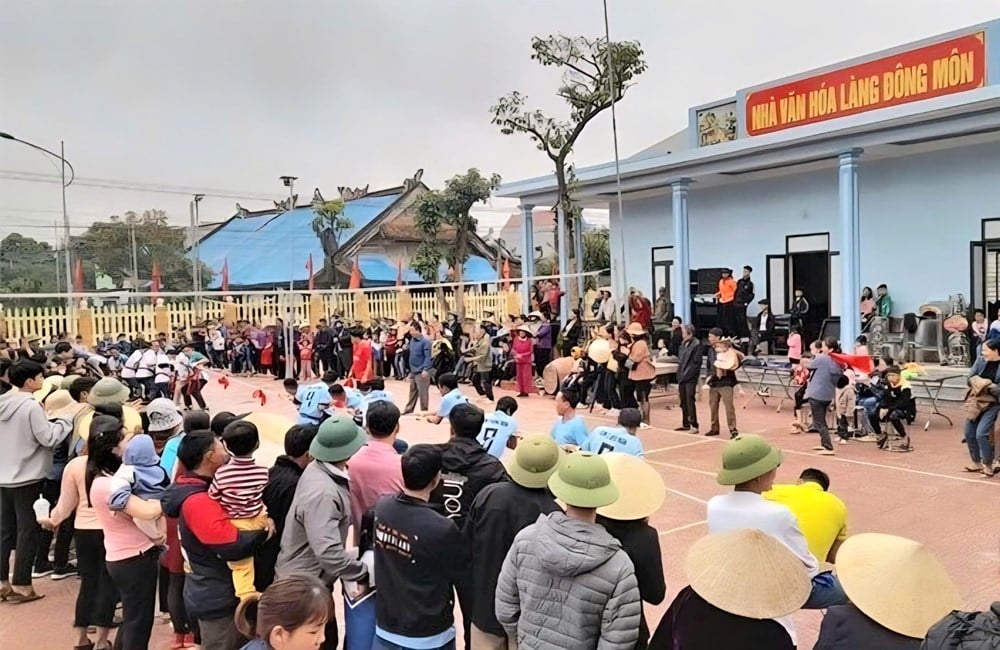
In many highland villages, especially in the West of Thanh Hoa, where the Thai and Muong people mainly live, community cultural houses have been playing the role of "knowledge bridges", a place to combine cultural and artistic activities with learning activities, transfer science and technology, and promote local socio -economic development.
Space to spread highland culture
Thuong Xuan Commune ( Thanh Hoa ) is a locality where Thai, Kinh and Muong ethnic groups live together. Particularly in Ma village, where 100% of the residents are Thai, the village cultural house has long been a familiar meeting place, closely associated with the spiritual life of the people.
Every weekend, the sound of gongs and folk songs resounds loudly in the activities of the Ma village art troupe, gathering many active members.
Established in 2022, after more than 3 years of operation, the Ma Village Arts Team has become the "soul" of the cultural and artistic movement at the grassroots level. The village cultural house is where the team regularly practices, performs and organizes exchanges and community activities.
From that familiar space, traditional Thai folk songs and dances are passed on to the younger generation, contributing to preserving the local cultural identity.
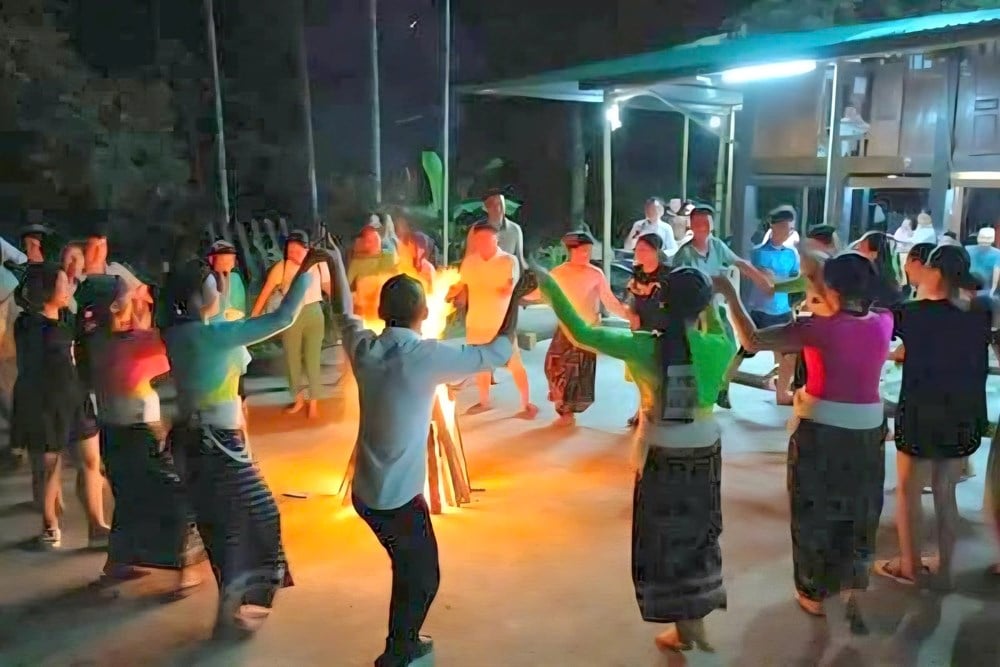
In addition to participating in programs and events organized by Thuong Xuan commune, the team also actively staged many unique performances to serve tourists who came to visit and experience Ma village, turning the cultural house into a true cultural center and attractive destination for the community.
Ms. Ha Thi Tuyen (32 years old, Ma village) shared: “The cultural house helps people have a place to meet, exchange arts, sports, and learn production techniques. We hope that the government will continue to pay attention and support the development of clubs and organize activities associated with the preservation of Thai and Muong cultural heritage so that this place can truly become a spiritual center of the community.”
Not only a space for arts and sports, the Ma village cultural house also regularly organizes training courses on preserving traditional culture, disseminating science and technology, guiding clean agricultural production and developing community tourism.
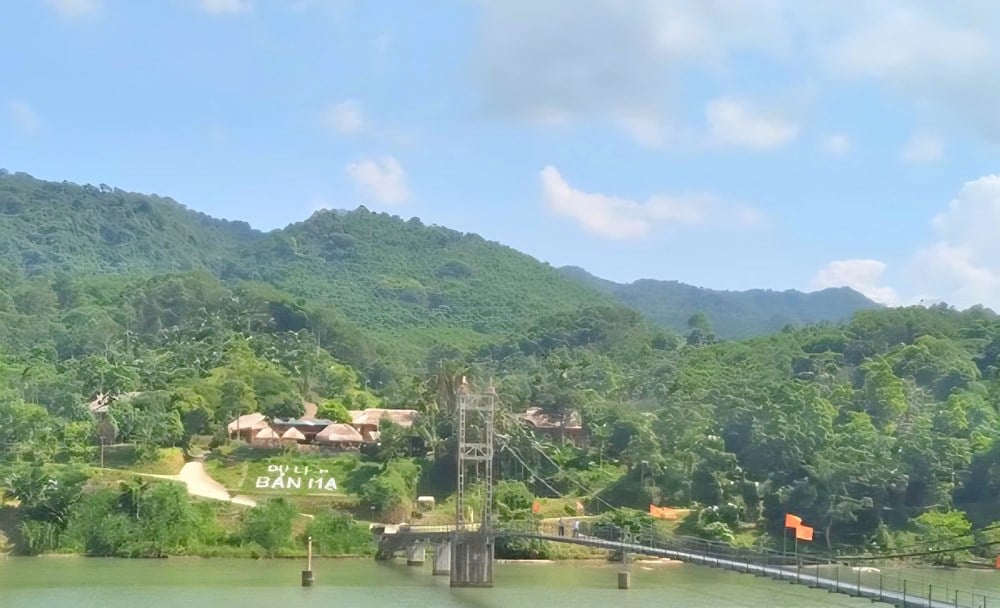
Thanks to that, this place is likened to a "school without a blackboard" where people learn together, exchange business experiences, and at the same time preserve and promote national cultural identity.
Up to now, Ma village still preserves more than 30 ancient stilt houses and 7 households maintain traditional crafts such as embroidery, brocade weaving, and knitting, contributing to enriching the cultural life of the Thuong Xuan highlands.
Along with the mountainous areas, in the plain areas, the effectiveness of the cultural house system is also increasingly evident. In Dinh Tan commune, 18/18 villages have cultural houses with synchronous investment, fully equipped with loudspeakers, televisions, cameras, wifi... to serve community activities.
During the summer, this is a place to organize summer activities for children, teach soft skills, popularize digital transformation, and guide people in applying scientific advances to clean agricultural production.
Localities such as Dong Tinh, Ho Thon, and Ve Thon also maintain classes in dancing, physical exercise, martial arts, and folk sports, contributing to enriching the spiritual life of new rural residents.
In the past, in many rural areas, people often had to gather in communal houses' yards, vacant lots or borrow houses to organize meetings and cultural performances. Now, with the investment of the State and the joint contributions of the people, most villages, hamlets and neighborhoods in Thanh Hoa have spacious and convenient cultural houses.
Mr. Nguyen Trong Tha, village 8, Quang Binh commune recalls: “In the past, there was no cultural house, so it was very difficult for people to meet to discuss common matters or organize singing and dancing. Now that there is a cultural house, everyone is excited, there is a stable place to live, and children have a place to play and practice. Gradually, the cultural and artistic movement has developed strongly, and people are more united and united.”
Not only a meeting place, the cultural house has also become a "bright spot" in building a new cultural life. In Dong Son ward, 100% of residential groups have cultural houses that have been invested in and upgraded synchronously. Many places also arrange bookshelves and outdoor sports equipment, creating conditions for people to exercise, read books, participate in art and health club activities...
Ms. Nguyen Thi Thanh, a member of the Dong Son Ward Folk Song and Cheo Singing Club, shared: “The cultural house is a place to connect the village and neighbors, helping people get closer together. In addition to practicing arts, we also share business experiences, organize club activities, create joy for the elderly and spread the spirit of love for national culture.”
The head of the Da Ninh residential group (Dong Son ward), Mr. Nguyen Hung Vinh, said: “The cultural house is always bustling. People consider this a common space for the community, both for meetings and policy implementation, and also a place for cultural and sports activities. The village agrees to open the cultural house regularly, assigns groups to maintain its activities, and keeps it clean, so the project is always preserved and promoted effectively.”
Cultural institutions – the foundation of community development
Since the implementation of the National Target Program on Socio-Economic Development in Ethnic Minority and Mountainous Areas for the 2021-2030 period, the movement to restore, preserve and promote traditional cultural values has been further promoted.
Many cultural houses have become centers for displaying and introducing local handicrafts and agricultural products, contributing to the development of community tourism and creating livelihoods for people.
According to the Department of Culture, Sports and Tourism of Thanh Hoa, the whole province currently has 4,302 villages, hamlets and neighborhoods with cultural houses (reaching 98.7%). Thanks to the investment of the State and socialized resources, cultural houses have been newly built, upgraded, and met the increasing living needs of the people.
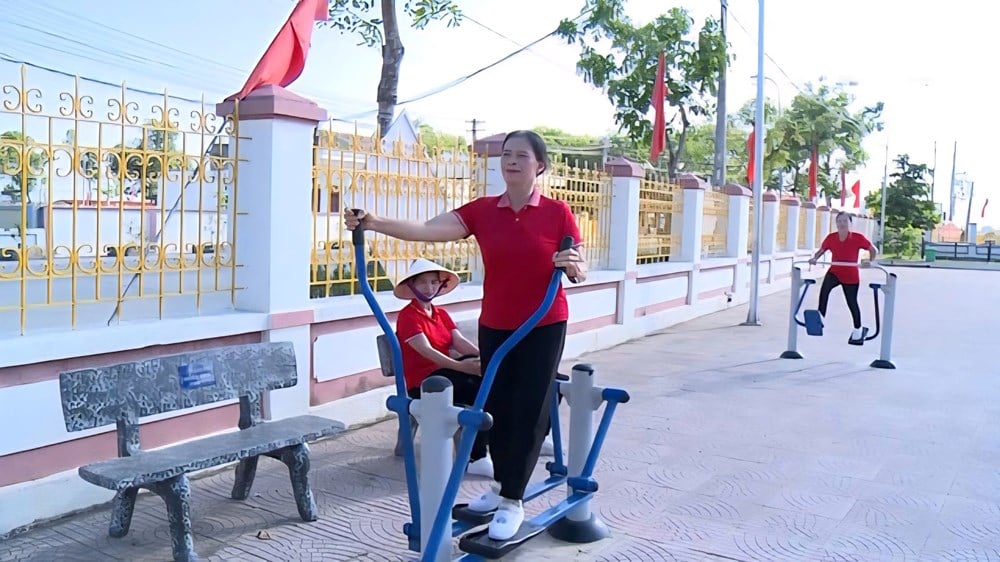
The leader of the Department of Culture, Sports and Tourism of Thanh Hoa said: "Community cultural houses are important grassroots cultural institutions, not only serving spiritual activities but also contributing to the implementation of sustainable development goals.
In the coming time, the Department will continue to advise the province to increase synchronous investment in facilities, improve the quality of activities of the cultural house system, especially in mountainous areas and ethnic minority areas.
We aim for each cultural house to truly become a center for community activities and learning, a place to preserve and spread the unique cultural identity of each region of Thanh Hoa."
The effective operation of the cultural house system has created a strong influence, contributing to promoting the movement "All people unite to build a cultural life" to develop widely.
Over the past 5 years, propaganda work to raise awareness has been strengthened; the implementation of civilized lifestyles in weddings, funerals, festivals, village covenants and conventions has been focused on. Competitions, mass art performances, cultural and sports festivals have been held regularly, attracting a large number of people to participate.
As a result, the whole province has 87.6% of households achieving the title of cultural family, 89.7% of villages, hamlets and residential groups achieving the title of cultural residential area, 20 communes, wards and towns recognized as "typical", and 100% of residential communities have their own village covenants and conventions.
These figures not only demonstrate the development of the grassroots cultural movement, but also demonstrate the practical role of community cultural houses in improving spiritual life, strengthening solidarity and cultural identity of Thanh Hoa people.
Source: https://baovanhoa.vn/van-hoa/nha-van-hoa-cong-dong-khong-gian-ket-noi-va-gin-giu-ban-sac-180137.html








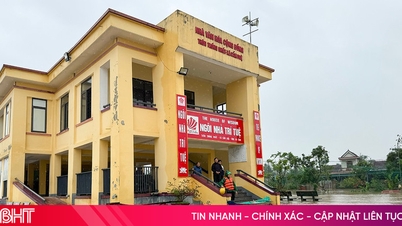

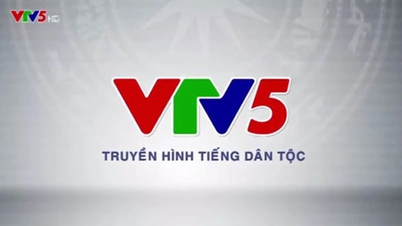

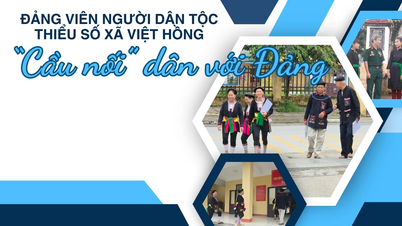


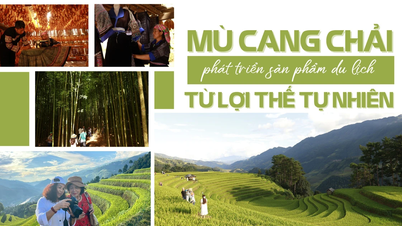
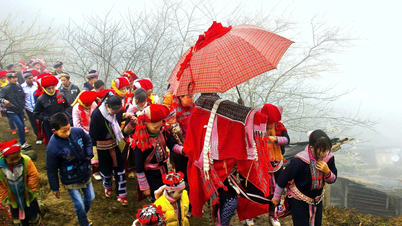
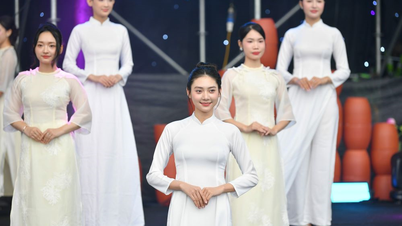

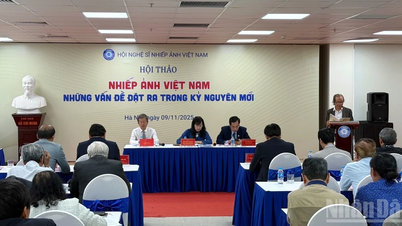

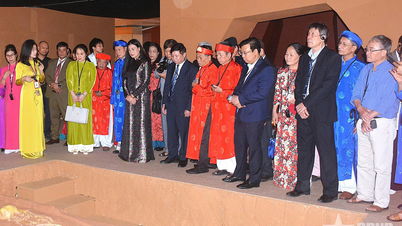

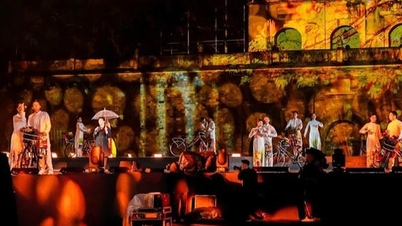

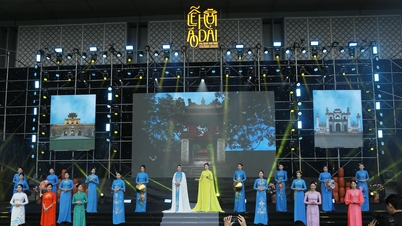





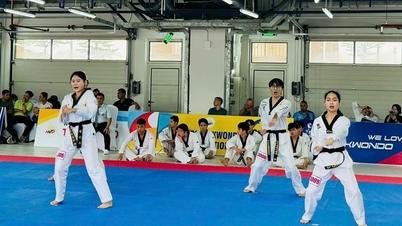
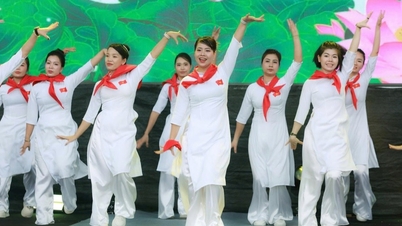
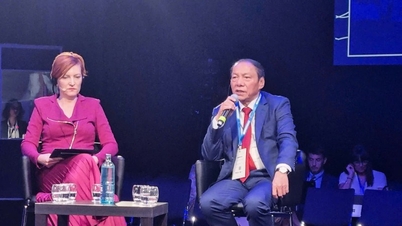




































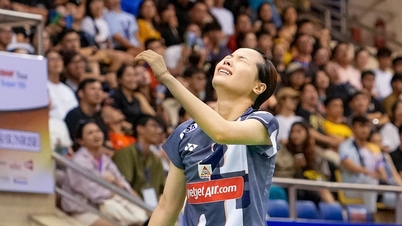
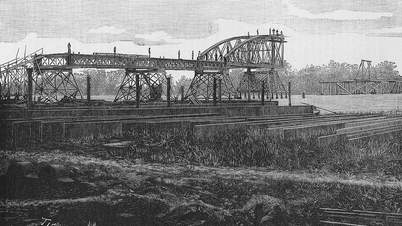

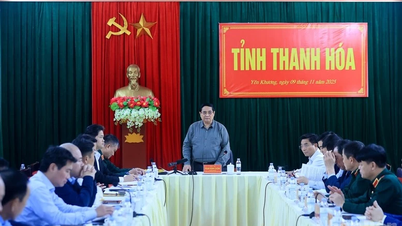




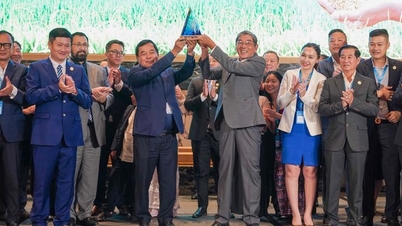





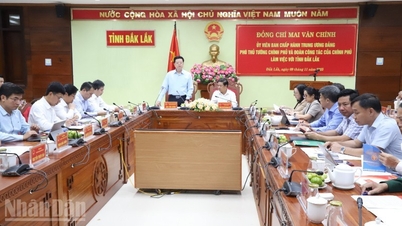

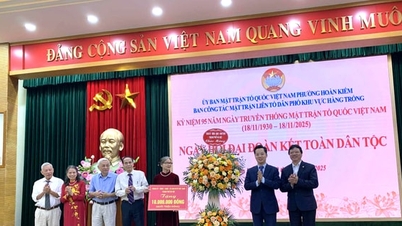


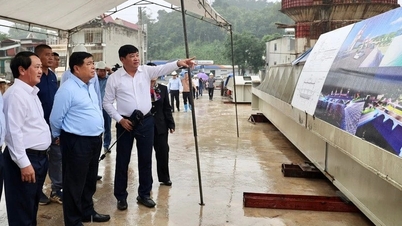



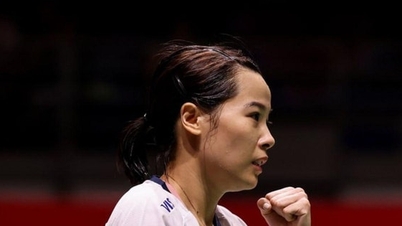













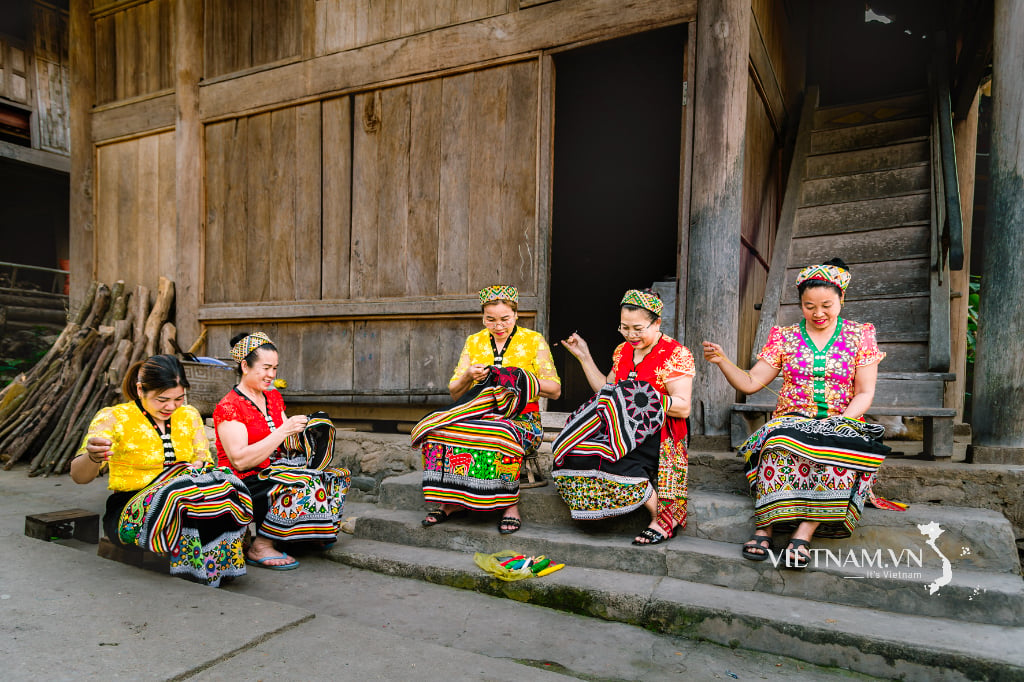
Comment (0)